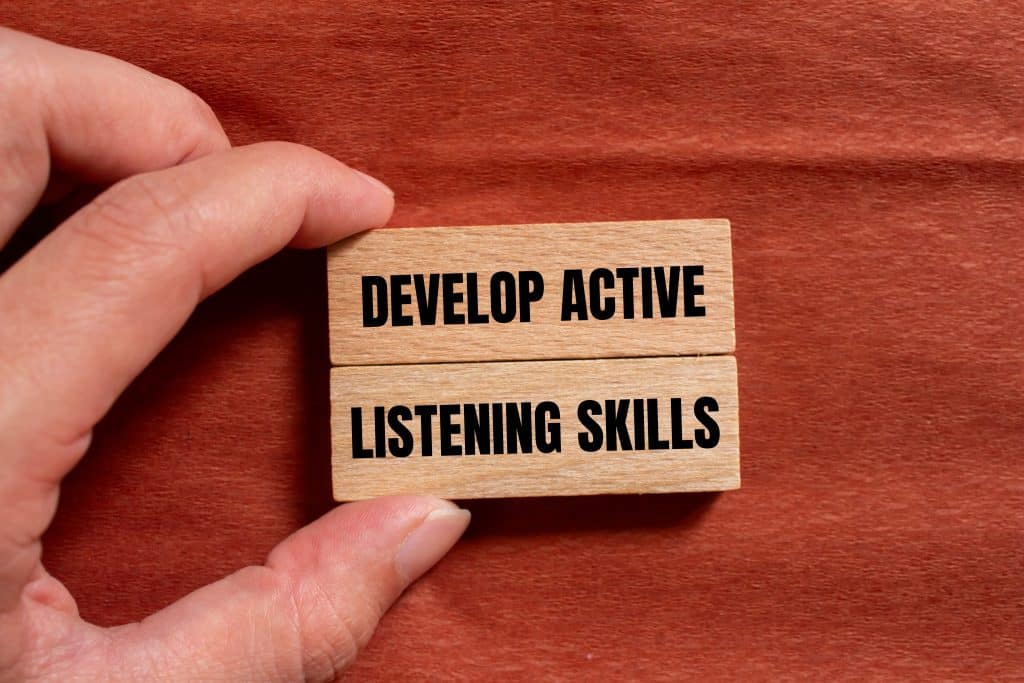Best Education Apps in 2025 to Learn Easily

🎓 Learn Easily and Effectively

Technology has completely changed the way we study. Today, with just a smartphone, you can /blog/educational-platformlearn new languages, start coding, take online university courses, or even strengthen school subjects. Education apps have become essential tools for students, professionals, and lifelong learners who want to expand their knowledge in a practical and affordable way.
If you’re looking for smarter and more flexible ways to study, check out this list of the 10 best education apps in 2025.
1. Duolingo – Learn Languages with Gamification
One of the most popular educational apps in the world for learning languages, Duolingo has redefined how millions of people study every day. Instead of relying on traditional methods, the app uses gamification to make learning engaging and addictive. Lessons are designed like short games, with colorful visuals, fun challenges, and instant feedback that keep learners motivated.
With educational features such as daily streaks, progress tracking, and personalized lesson plans, Duolingo adapts to the learner’s pace and level. It also covers a wide variety of languages, from global options like English, Spanish, and French to less common choices such as Welsh or Hawaiian.
This educational platform is perfect for beginners who want to start a new language journey in a simple, interactive way, but it also benefits intermediate learners who need consistent practice. By combining entertainment with education, Duolingo proves how powerful educational technology can be in turning language learning into a daily habit.
2. Babbel – Real-Life Conversations

Babbel is one of the most recognized educational apps for learning languages, especially for people who want to develop practical communication skills. Unlike platforms that focus heavily on memorization or vocabulary lists, Babbel emphasizes real-life conversations and everyday dialogues. Its lessons are short, structured, and designed to simulate real situations, making it highly effective for those who want to apply what they learn immediately.
With personalized courses created by language experts, Babbel offers educational content that adapts to your level and goals. Whether you’re preparing for travel, work, or personal growth, the app helps you build confidence in speaking by focusing on pronunciation, grammar, and cultural context.
This educational platform stands out because it doesn’t just teach words — it teaches how to interact naturally. For travelers, it’s an invaluable tool to communicate abroad, and for learners in general, it’s a reliable way to gain conversational fluency step by step. By blending interactive exercises with real-world application, Babbel proves the power of modern educational technology to bring language learning closer to everyday life.
3. Coursera – University-Level Courses
| Aspect | Details |
|---|---|
| What it is | A powerful educational platform bringing world-class learning to your smartphone or computer. |
| Partners | Top institutions such as Yale, Stanford, Google, and the University of São Paulo. |
| Subjects | Data science, business management, psychology, arts, and more—expert-designed educational content. |
Coursera is one of the most powerful educational platform available today, bringing world-class learning directly to your smartphone or computer. This app partners with top universities and institutions such as Yale, Stanford, Google, and even the University of São Paulo, offering a wide variety of courses across multiple fields. From data science and business management to psychology and the arts, Coursera delivers high-quality educational content designed by experts.
What makes Coursera stand out among other educational apps is its flexibility. Learners can choose from free courses to explore new subjects, or invest in paid programs that provide professional certificates and even full degrees. These certificates are highly valued by employers, making Coursera not only a tool for personal growth but also a powerful career booster.
Its structured lessons include video lectures, quizzes, peer-reviewed assignments, and practical projects. This ensures that learners don’t just consume information but also apply their knowledge in real-world scenarios. With its global community of students, Coursera has become an educational hub where people from all over the world can connect, collaborate, and share insights.
By combining academic credibility with the convenience of mobile learning, Coursera proves how far educational technology can go in democratizing access to knowledge and opening doors to new professional opportunities.
4. Udemy – Learning for Everyone
Udemy is one of the largest educational platforms in the world, offering more than 200,000 courses that cover almost every subject imaginable. From marketing, business, and entrepreneurship to design, photography, and programming, this app provides endless opportunities for learners to acquire new skills or improve existing ones.
What makes Udemy unique among educational apps is its open marketplace model. Anyone with expertise can create and share a course, which results in a huge diversity of content and teaching styles. This means that learners can always find an instructor whose approach fits their needs, whether they prefer detailed explanations, practical projects, or step-by-step guides.
Another advantage of this educational platform is flexibility. Courses are self-paced, allowing students to learn on their own schedule without the pressure of deadlines. Once you purchase a course, you usually get lifetime access, which makes it easy to review lessons whenever you want.
Udemy also offers both free and paid options, making it accessible to learners of all backgrounds. For professionals, it serves as a way to stay updated with industry trends, while beginners can use it to explore entirely new fields. With video lectures, downloadable resources, and interactive assignments, Udemy demonstrates how educational technology
can empower anyone to keep learning at any stage of life.
5. Khan Academy – Free Education for All
![]()
Khan Academy is one of the most respected educational platforms in the world, built on the mission of making high-quality learning accessible to everyone, everywhere. This non-profit organization has grown into a global educational resource, trusted by students, teachers, and parents alike.
The app is especially valuable for learners who need extra support outside the classroom. It covers a wide range of subjects such as mathematics, science, economics, history, and even art. Lessons are delivered through easy-to-understand video explanations, followed by interactive educational exercises that help reinforce the content. This structure makes it ideal for students of all ages — from young learners in elementary school to adults returning to education.
One of the most powerful aspects of Khan Academy is its focus on personalized learning. The app uses data and progress tracking to identify each student’s strengths and weaknesses, then recommends lessons to close learning gaps. This individualized approach demonstrates how educational technology can adapt to each learner’s needs instead of following a one-size-fits-all model.
Another major advantage is accessibility. Khan Academy is completely free, with no hidden costs. This makes it one of the most important educational tools for families and schools with limited resources. By removing financial barriers, it provides equal opportunities for anyone who wants to improve their knowledge.
The platform is also widely used by teachers, who can assign lessons, monitor student progress, and provide targeted support. Parents benefit as well, as the app allows them to guide their children’s learning journey in a structured yet flexible way. With this level of integration, Khan Academy has become not only an app but a full educational ecosystem.
By combining free access, expert-designed content, and adaptive technology, Khan Academy continues to prove how powerful educational apps can be in shaping the future of learning. It empowers students to study at their own pace, build confidence, and achieve academic success without financial barriers.
6. Khan Academy Kids – Learning for Children
Khan Academy Kids is a child-friendly educational app created to spark curiosity and make early learning both fun and effective. Designed for children ages 2 to 8, the platform provides a safe and engaging environment where kids can explore essential skills through play-based activities. It brings together the trusted expertise of Khan Academy with interactive tools that meet the unique needs of young learners.
This version includes educational games, colorful animations, songs, and interactive stories that teach the basics of reading, writing, math, and problem-solving. Each activity is designed to keep children entertained while reinforcing fundamental concepts, making learning feel like play rather than a chore.
One of the standout features of Khan Academy Kids is its adaptability. The app adjusts activities to the child’s developmental stage, offering personalized challenges that help build confidence step by step. Parents and educators can track progress, ensuring kids are not only entertained but also truly benefiting from the educational content.
Beyond academics, this educational platform emphasizes social-emotional learning. Through engaging stories and characters, children learn values such as sharing, empathy, and cooperation, which are just as important as academic skills in early education.
Another advantage is accessibility — like the main Khan Academy app, Khan Academy Kids is completely free. Families from all backgrounds can access high-quality educational resources without worrying about subscription costs, making it a valuable tool for inclusive early education.
By combining entertainment with structured lessons, Khan Academy Kids shows how modern educational technology can support children’s growth, preparing them not only for school but also for life. It transforms screen time into meaningful learning time, giving parents peace of mind and kids a strong foundation for future success.
7. SoloLearn – Learn Programming Easily

SoloLearn is a practical and dynamic educational app designed for beginners who want to dive into the world of programming. It stands out as one of the most accessible ways to start coding, offering bite-sized lessons that make even complex concepts easy to understand. With a focus on flexibility and self-paced study, SoloLearn has become a go-to choice for people who want to learn programming anytime, anywhere.
The app covers a wide variety of programming languages, including Python, JavaScript, C++, Java, HTML, CSS, SQL, and more. Each course is designed to guide learners step by step, starting with the basics and gradually moving into advanced topics. This makes it an excellent educational tool for both absolute beginners and those who want to strengthen their technical foundation.
One of SoloLearn’s strongest features is its global learning community. Millions of learners from around the world use the app, making it not just a course provider but an educational platform where students can ask questions, share solutions, and learn collaboratively. This interactive approach transforms programming into a social experience, reducing the isolation that often comes with self-study.
In addition to lessons, the app offers interactive coding exercises that let learners practice directly on their devices. By applying new skills immediately, users reinforce their knowledge and gain hands-on experience. SoloLearn also provides quizzes, progress tracking, and achievement badges, turning programming into a rewarding journey powered by educational gamification.
Another advantage is accessibility. Unlike traditional coding bootcamps that can be expensive, SoloLearn offers a large portion of its content for free, with optional premium features for learners who want more depth. This makes it one of the most inclusive educational apps for coding, allowing anyone to start building valuable digital skills without financial barriers.
By combining structured lessons, interactive practice, and community support, SoloLearn proves that educational technology can make programming approachable for everyone. It empowers learners to gain skills that are highly demanded in today’s job market, while also encouraging curiosity and creativity. For those seeking a flexible, beginner-friendly path into tech, SoloLearn is one of the best educational platforms to start the journey.
8. Mimo – Coding in Daily Life
Mimo is a highly practical educational app that transforms coding into a daily habit. Designed with busy learners in mind, it delivers short and effective lessons that can be completed in just five minutes a day. This microlearning approach makes it perfect for professionals, students, or anyone who wants to gradually build coding skills without feeling overwhelmed.
The app focuses on step-by-step progress, starting with the basics of languages like Python, JavaScript, and HTML, and gradually moving toward more advanced topics. Each lesson is interactive, encouraging learners to apply new concepts immediately through small coding exercises. This hands-on approach reinforces retention and makes Mimo an engaging educational tool for both beginners and intermediate learners.
What sets Mimo apart from other educational platforms is its real-world focus. Instead of abstract coding drills, many of its lessons simulate practical projects — like building a website, creating an app, or understanding the logic behind algorithms. This project-based learning ensures that learners not only understand the theory but can also apply their knowledge in meaningful ways.
Mimo also integrates educational gamification features, such as streaks, rewards, and progress tracking, to keep learners motivated. These elements transform the learning process into a rewarding daily challenge, encouraging consistency — one of the most important factors for mastering programming.
Another advantage is accessibility. With its mobile-first design, Mimo allows you to code anywhere, whether you’re commuting, taking a break at work, or relaxing at home. The app fits seamlessly into daily routines, showing how educational technology can adapt to modern lifestyles.
For learners aiming to enter the tech industry or simply understand the basics of programming, Mimo offers a gateway into the digital world. By combining short lessons, real-world projects, and motivational features, it proves that coding doesn’t have to be intimidating. Instead, with the right educational platform, anyone can learn step by step and turn coding into a sustainable daily habit.
9. Skillshare – Creative and Personal Skills

Skillshare is a unique educational app that focuses on creativity, self-expression, and personal development. Unlike many platforms that concentrate only on academic or technical knowledge, Skillshare is designed to inspire learners to unlock their creative potential. It offers thousands of classes in areas like writing, photography, illustration, animation, graphic design, film production, and music. In addition, it includes practical courses on entrepreneurship, productivity, and personal branding, making it a versatile educational platform for both personal and professional growth.
What makes Skillshare different from other educational apps is its community-driven model. Many of the instructors are working professionals, freelancers, and creators who share real-world insights and hands-on techniques. This practical teaching style gives learners a direct look at how skills are applied in the creative industry, bridging the gap between theory and real-world application.
The app’s format is also learner-friendly. Most classes are divided into short, engaging video lessons that can be completed at your own pace. This makes it easy to fit learning into a busy schedule while still building consistent progress. Many classes also include projects, encouraging learners to create something tangible and share it with the community. This project-based approach transforms Skillshare into an educational experience where learning by doing is at the core.
Skillshare is especially valuable for professionals who want to boost their careers with creative skills or side projects. Writers can learn storytelling techniques, designers can sharpen their portfolios, and entrepreneurs can develop branding strategies. For hobbyists, it’s also an enjoyable way to explore new passions without pressure.
By combining creativity, practicality, and community, Skillshare demonstrates the full potential of educational technology in today’s world. It empowers people not just to learn, but to create, experiment, and express themselves in meaningful ways. Whether you’re advancing your career or exploring a new passion, Skillshare is an inspiring educational app that blends knowledge and creativity seamlessly.
10. Brilliant – Interactive Math and Science
Brilliant is a powerful educational app that transforms the way people learn math, science, and logic. Instead of relying on traditional memorization, it uses interactive methods to make complex concepts simple, engaging, and even fun. Its mission is to help learners build problem-solving skills through practice rather than passive study — an approach that has made it one of the most innovative educational platforms available today.
One of Brilliant’s standout features is its visual learning style. Lessons are designed with clear graphics, diagrams, and interactive simulations that bring abstract ideas to life. For example, instead of reading about physics principles in theory, learners can manipulate digital experiments and see how the laws of motion apply in real time. This hands-on approach turns math and science into living, breathing subjects, making them far less intimidating.
The app covers a wide range of topics, including algebra, geometry, statistics, computer science, and logic puzzles. Each course is divided into short, digestible lessons that encourage active participation. Learners are asked to solve problems at every step, ensuring they truly understand the material instead of just memorizing it. This problem-first method sets Brilliant apart from many other educational apps that focus only on lectures or passive reading.
Brilliant is also ideal for lifelong learners. While students use it to supplement school subjects, professionals and curious adults turn to it to sharpen their analytical thinking and problem-solving skills. Its adaptive system ensures that learners progress at their own pace, making it a flexible educational tool for all ages.
Another unique aspect is motivation. Brilliant integrates educational gamification through challenges, streaks, and rewards that keep learners engaged over time. By combining fun with serious study, it transforms learning into an experience that feels more like a game than a classroom.
By blending interactivity, real-world problem-solving, and visual explanations, Brilliant proves how far educational technology can go in reshaping the learning process. For anyone who wants to strengthen logic, improve math skills, or explore science in an enjoyable way, Brilliant is one of the best educational apps in 2025 — a tool that makes learning both effective and exciting.
🚀 Conclusion
The best education apps in 2025 are more interactive, accessible, and effective than ever. Whether you want to master a new language, learn to code, or strengthen academic skills, these apps put the classroom right in your pocket.
With consistency and the right tools, your phone can become a powerful gateway to knowledge and growth.





